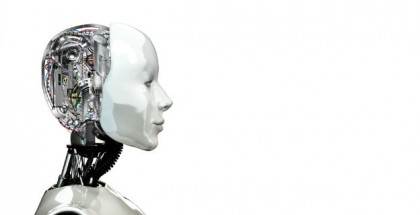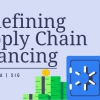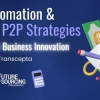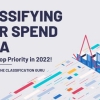The first ever meeting of Artificial Intelligence (AI) experts held in 1956 ended with a declaration from delegates that intelligent computers would be a commonplace in our lives in that decade or soon after. However, progress seemed to be illusory and the disappointment of Expert Systems at the start of the 1980s meant for many business leaders, AI came to mean ‘big hype’.
Recently, those 1956 hopes have been revived with the almost invisible rise of highly-functional software. These machines may not quite be like 2001’s HAL, but nonetheless these ‘smart,’ cognitive platforms are capable of many complex or abstract capabilities that have been considered exclusively human.
These are machines that can win chess against Grand Masters, excel at TV game shows and recognise faces. They’re even driving cars and are a lot safer than most human drivers! All that’s been made possible via slow but steady leaps in computing power and better ways of thinking about how to mimic intelligent behaviour in software. As a result, computers can now ‘see,’ ‘listen,’ ‘read,’ and ‘write’ – and achieve something that passes for understanding, although many philosophers remain sceptical as to what’s going on.
What we do know for certain is that AI has finally left the research lab and is available on various consumer technologies, from the game console to the smartphone to the hospital to the factory floor. Skype can translate natural language (NL) in real time, while NL services like Siri and Google Now are used widely. In many call centre systems sentiment analysis is helping operatives determine the emotional state of the person they are interacting with, and to respond accordingly.
So smart agents are getting better all the time. AI can now do more than interact with humans in semi-realistic ways, but also problem-solve and offer technical assistance in many branches of human endeavour. Virtual assistants are assisting technicians in fields as diverse as aeronautics to the oil and gas sector, plus performing complex constructions and repairs, for example.
IBM is an acknowledged leader here, since its Watson array won the game show Jeopardy three years ago. Since then, Watson has worked on cancer research, analysed the lyrics of Bob Dylan, predicted the hot toys of 2015 based on social media trends – even helped chefs explore new flavours and recipes. You may have also heard of IPsoft’s Amelia, a smart agent with a convincing avatar that can read and understand text, follow processes, solve problems and learn from experience. Amelia can hoover up an oil-well centrifugal-pump manual in 30 seconds and be immediately competent at repairs. That’s just one example of the programme’s flexibility; it can do the job of a call-centre operator, a mortgage or insurance agent, even a medical assistant, with virtually no human help. To achieve these feats, the software is able to learn very rapidly. That’s because machine learning systems like Amelia don’t need to be reprogrammed each time a new situation arises, but ‘naturally’ improve and expand their capabilities with more exposure to training material and experience.
Financial services; the ideal ‘workplace’ for a quick-thinking robot?
If AI is entering various parts of the economy, it’s in financial services where they find a natural home. The complexity of the markets, the vast amount of data you need to effectively grasp to work them, the need for efficiency and better customer service makes cognitive technologies a convincing fit.
In risk management and compliance scenarios, for example, smart agents will evaluate cases against policies and guidelines while able to cope with the subtleties of risk exposure. Financial and market analysis will be improved through the analysis of vast quantities of information. Interestingly, smart software is especially adept at answering open-ended questions, highly desirable in isolating the key trends and variables traders may miss. In wealth management, where relationship managers have to analyse large volumes of complex data, AI advisors are a shoo-in, as they’re going to be able to process an ever-expanding body of investment knowledge.
Systems like Watson and Amelia are already used in the financial sector, by the way: DBS Bank uses the former to determine optimal financial options for its wealth management customers, while at least one Tier One US bank is known to employ Amelia to manage trading platforms and call centres.
Also figuratively ‘on the payroll’ in Wall St is Kensho’s Warren, which can establish how securities react after the release of a market-altering piece of news and it is claimed to be able to answer 100 million types of financial questions. Lastly, Markit produces reports written by a robot, Quill, whose format is said to be indistinguishable from a human and which has a high work ethic of up to 40 such reports per ‘shift.’
The economics of employing these technologies make sense. The speed at which some tasks can be processed by computers makes their involvement a real cost saving necessity, not an experiment. Indeed, given the increased volumes of data businesses have to work with, their contribution may soon be necessary for survival in some highly-competitive trading environments.
In other words: outsourcing could soon be about giving internal jobs to silicon, not Singapore.
Clearly, we are at a point where cognitive technologies are powerful and reliable enough to be deployed in complex business environments, including financial services, where they will soon be asked to replace at least a few of the workforce.
However, the human factor will always remain very much part of the equation, with roles adjusted to better fit what we will probably always be better at than robots: our creativity, imagination and reasoning power. Which seems to me to be a source of optimism about our future.









